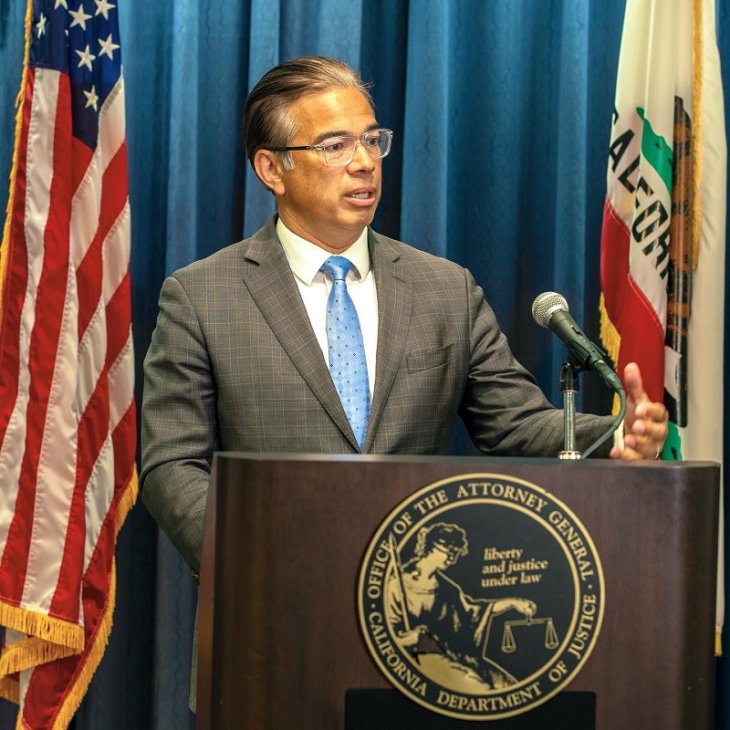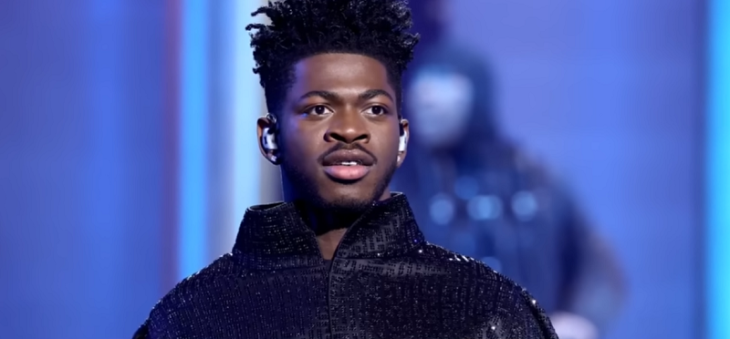
BY CHRIS JOHNSON | President-elect Donald Trump has selected as his attorney general an Alabama Republican who not only was once denied a seat on the federal judiciary for allegedly making racist comments, but has been hostile to LGBT rights over the course of his career.
On Friday, Trump announced in a statement Sen. Jeff Sessions (R-Ala.), an early supporter of the president-elect during the Republican presidential primary, would be his choice for attorney general.
“It is an honor to nominate U.S. Sen. Jeff Sessions to serve as Attorney General of the United States,” Trump said. “Jeff has been a highly respected member of the U.S. Senate for 20 years. He is a world-class legal mind and considered a truly great attorney general and U.S. attorney in the state of Alabama. Jeff is greatly admired by legal scholars and virtually everyone who knows him.”
Prior to his tenure in the U.S. Senate starting in 1997, former President Reagan nominated Sessions in 1986 for a seat on the federal judiciary in Alabama, but his nomination was rejected over accusations of racism.
Among the lawyers who testified against Sessions at the time said Sessions called the NAACP and the American Civil Liberties Union “un-American” and “Communist-inspired” and said they “forced civil rights down the throats of people.”
Thomas Figures, a black assistant U.S. attorney, testified Sessions said the Ku Klux Klan was “OK until I found out they smoked pot.” (Sessions said he was joking, but apologized for the remark.) Figures also said Sessions called him “boy” and that Sessions advised him to “be careful what you say to white folks.” Sessions was also reported to have called a white civil rights attorney a “disgrace to his race” for defending black clients.
Sessions denied the allegations, said his remarks were taken out of context or meant in jest. He also said that groups could be considered un-American when “they involve themselves in un-American positions” on foreign policy.
Anthony Romero, executive director of the ACLU, said in a statement his organization would “flatly reject” any assertion from Sessions the ACLU is “un-American and communist.”
“His positions on LGBT rights, capital punishment, abortion rights, and presidential authority in times of war have been contested by the ACLU and other civil rights organizations,” Romero said. “As the nation’s highest-ranking law enforcement official, the attorney general is charged with protecting the rights of all Americans. In his confirmation hearings, senators, the media, and the American public should closely examine his stances on these key issues to ensure we can have confidence in his ability to uphold the Constitution and our laws on behalf of all Americans.”
Decades later during his tenure in the U.S. Senate, Sessions resisted LGBT rights advancements. In each of the Human Rights Campaign’s congressional scorecards, Sessions has generally scored “0” for each Congress in which he served. (The one exception was the 112th Congress, when Sessions obtained a score of “15” for voting to confirm U.S. District Judge J. Paul Oetken, who became the first openly gay male to serve on the federal judiciary.)
Among his earlier votes in 2004 and 2006 in the Senate were for a U.S. constitutional amendment that would have banned same-sex marriage nationwide and prevented the U.S. Supreme Court last year from ruling in favor of marriage equality.
A member of the Senate Armed Services Committee, Sessions was among those most outspoken against “Don’t Ask, Don’t Tell” repeal along with Sens. John McCain (R-Ariz.) and Sen. Lindsey Graham (R-S.C.). During a Senate hearing in December 2010 as Congress debated repeal, Sessions called the issue a “difficult discussion.”
“It was predicted it would have some disruptive effect on the military,” Sessions said. “I believe it probably has. It’s probably not been good for morale and problems have arisen from it, and I’m inclined to the personal views that ‘Don’t Ask, Don’t Tell’ has been pretty effective and I’m dubious about the change, although I fully recognize that good people could disagree on that subject.”
Upon the U.S. Supreme Court decision last year in favor of same-sex marriage nationwide, Sessions told WKRG-TV in Alabama he opposed the decision because “if a court can do that on a question of marriage then it can do it on almost any other issue.”
“I think what this court did was unconstitutional,” Sessions said. “There’s nothing in the Constitution that requires such a result. No mention of marriage in the Constitution.”
More recently, Sessions voted against the Employment Non-Discrimination Act when it came before the Senate in 2013 and became a co-sponsor of the First Amendment Defense Act, a federal “religious freedom” bill that would enable anti-LGBT discrimination.
Notably, last year when the Pentagon announced it would initiate a review that would lead to the end of its ban on openly transgender people in the U.S. armed forces, Sessions had no comment. Asked by the Washington Blade on Capitol Hill about the development, Sessions said, “I saw that, but I’m not aware of any of the details.”
Asked whether the change sounded like something he could support, Sessions replied, “Well, I’d like to see what the military says about it. I have not done that.”
Tony Perkins, president of the anti-LGBT Family Research Council, said in a statement Trump made “another wise selection” with the choice of Sessions as attorney general.
“President-elect Trump has surrounded himself with solid advisers, and his selection of Sen. Sessions for attorney general increases my confidence that the Trump administration will be one that cherishes the Constitution and its protection of our freedom from government oppression,” Perkins said. “Sen. Sessions understands the importance of all of our God-given rights, respects the rule of law, and will be a vital part of restoring our nation to its greatness.”
Sessions’ appointment is subject to Senate confirmation. Under the rules instituted by Sen. Harry Reid (D-Nev.) when he served as a majority leader of the chamber, ending a filibuster on confirmation would require a bare majority of 51 votes. Another 51 votes are necessary to confirm him to the seat.
Sen. Patrick Leahy (D-Vt.), top Democrat on the Senate Judiciary Committee, said in a statement the attorney general is “the chief protector of civil rights and civil liberties for everyone,” which he said is especially important at a time “when hate crimes have spiked across the country, especially against Muslim and LGBTQ Americans.”
“Sen. Sessions and I have had significant disagreements over the years, particularly on civil rights, voting rights, immigration and criminal justice issues,” Leahy said. “But unlike Republicans’ practice of unprecedented obstruction of President Obama’s nominees, I believe nominees deserve a full and fair process before the Senate. The American people deserve to learn about Senator Sessions’ record at the public Senate Judiciary Committee hearing.”
If the Senate confirms Sessions, he would immediately be given the opportunity to rescind ongoing actions at U.S. Justice Department on behalf of LGBT rights.
Likely the first to go is joint guidance from the Justice Department and the Education Department under the Obama administration instructing that discrimination against transgender students, such as barring them from the restroom consistent with their gender identity, contravenes federal law. Trump made rescinding that guidance a campaign promise.
Also on the chopping block is a lawsuit U.S. Attorney General Loretta Lynch filed against North Carolina’s House Bill 2, which bars transgender people from using the restroom consistent with their gender identity. Even if that were the case, litigation in federal court filed by Lambda Legal and the ACLU against the statute would remain ongoing.
If the Obama administration files a friend-of-the-court brief before the Supreme Court on behalf of a Virginia transgender student who’s challenging his school for barring him from using the restroom consistent with his gender identity, the Justice Department could withdraw that filing.
Sessions could also reverse the memo from former U.S. Attorney General Eric Holder declaring the Justice Department interpreting Title VII of the Civil Rights Act of 1964 as applicable to “discrimination based on gender identity, including transgender status.” That memo has served as the basis for Justice Department actions against transgender discrimination, such as a lawsuit filed against Southeastern Oklahoma State University alleging anti-trans discrimination in the workforce.
Chad Griffin, president of the Human Rights Campaign, said in a statement Trump’s selection of Sessions as attorney general is troubling.
“It is deeply disturbing that Jeff Sessions, who has such clear animus against so many Americans — including the LGBTQ community, women and people of color — could be charged with running the very system of justice designed to protect them,” Griffin said. “When Donald Trump was elected, he promised to be a president for all Americans, and it is hugely concerning and telling that he would choose a man so consistently opposed to equality as one of his first — and most important — cabinet appointees.”






















